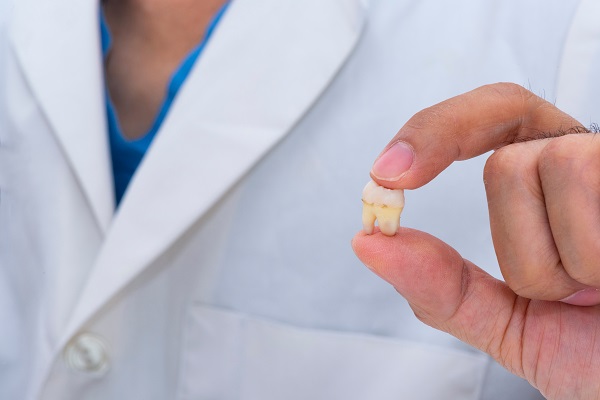Tooth Extraction: 5 Do’s and Don’ts After Surgery
It can be hard to know exactly how to recover properly after . Long ago, there was a lot of pain involved afterward, however, modern-day dentistry has allowed for the evolution of less invasive techniques, which results in less swelling and less pain. Nonetheless, there are still a few things to consider after tooth extraction. Keep reading to find out more.
5 Do's and don'ts after tooth extraction
Outlined below are a few do's and don'ts to follow after tooth extraction. These tips come right from a general dentist who is trained to offer the necessary aftercare recommendations.
1. Don't eat hard or tough foods
Eating hard or tough foods can be irritating to the fresh extraction wound. It is best to avoid foods that may be too hard or too tough, such as jerky, meat with bones, or raw vegetables. Instead, a soft-food diet or a lot of liquids are best to consume for a day or so after tooth extraction.
2. Don't skip oral hygiene
It can be easy to skip oral hygiene after tooth extraction out of fear of irritation, however, this can do harm to the entire oral cavity. Skipping oral hygiene can lead to infections in the gums and teeth. Dentists recommend using a soft-bristled toothbrush and a gentle toothpaste to clean the teeth as normal. The area where the tooth was extracted should be carefully cleaned.
3. Do use ice or cold compresses
Using an ice pack or cold compress after tooth extraction can reduce inflammation and discomfort. Typically, the wound itself should not be iced, but the surrounding area can be sore, which results in the need for an ice or cold pack. It is best to use these for a few minutes at a time only.
4. Do take an over-the-counter pain reliever
Tooth extraction does not typically warrant a need for prescription pain medication. However, there is usually some discomfort for a day or so afterward, which can result in the need to take a pain reliever. Typically, an over-the-counter pain reliever does the trick, so long as it is taken in moderation. Dentists also recommend taking them with food to avoid an upset stomach.
5. Don't use mouthwash, but do use salt-water
Dentists highly recommend using salt-water to rinse the oral cavity after tooth extraction, however, they advise against mouthwash. Mouthwash can be abrasive, which can harm the wound, thus resulting in irritation and further discomfort. Salt-water, on the other hand, is gentle and natural, but a good option for disinfecting the oral cavity to ensure cleanliness, which encourages healing.
Ready to get started?
When preparing for tooth extraction, it can be helpful to consult directly with an experienced dentist. The dentist can provide further tips on recovering, which can be helpful to those feeling nervous about the process afterward. Additionally, the patient can have any questions and concerns addressed. Give us a call today to get scheduled for an appointment.
Request an appointment here: https://compassiondentistry.com or call Compassion Family Dentistry at (503) 445-9579 for an appointment in our Milwaukie office.
Check out what others are saying about our dental services on Yelp: .
Related Posts
Tooth extraction can be a frightening concept, especially for those who have never had a tooth removed before and are not sure what to expect or those who have had a bad experience with extraction in the past. However, there are various things you and your dentist or oral surgeon can do to help mentally…
Regardless of one's oral health care routine, a person may need a tooth extraction some point in their life. The first step involves a general dentist examining your teeth to determine which tooth, or teeth, needs extraction. Whether a tooth is infected, impacted, or growing at a crooked angle, tooth extractions are an essential and…
Replacing a missing tooth as soon as possible helps prevent issues that lost teeth can cause, like bone tissue deterioration in the jaw, an increased risk of tooth decay, and the remaining teeth moving out of their proper alignment.Let us take a look at a few of the benefits of replacing a missing tooth with…
When dentures break, patients may have difficulty with daily activities, such as speaking and eating. Do not wait until your next regular dental appointment to address this issue. If you cannot be seen in a timely manner, an emergency dentist can help patients restore their dentures as quickly as possible.Dentures are usually durable but do…
